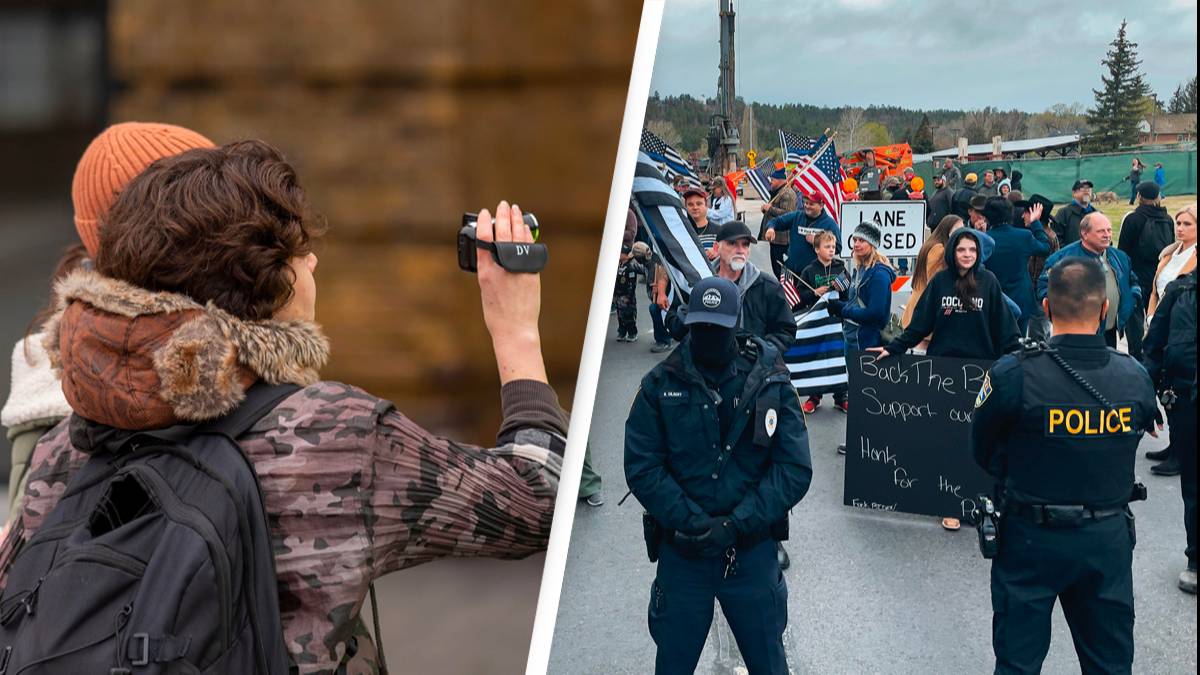- Joined
- Aug 15, 2020
- Posts
- 5,334
From the party of free speech.

 www.unilad.com
www.unilad.com
Arizona Will Ban People From Filming Police Officers At Short Distances

Arizona Will Ban People From Filming Police Officers At Short Distances
A law in the US state of Arizona will ban people from filming police officers at short distances, with possible fines or jail for those who don't comply.

